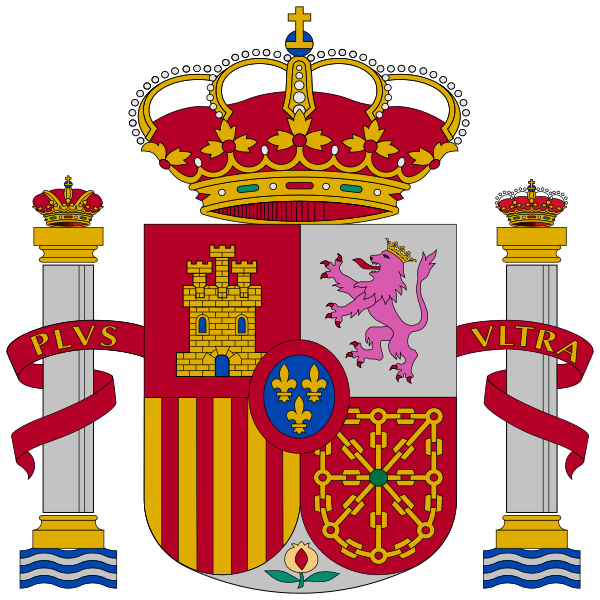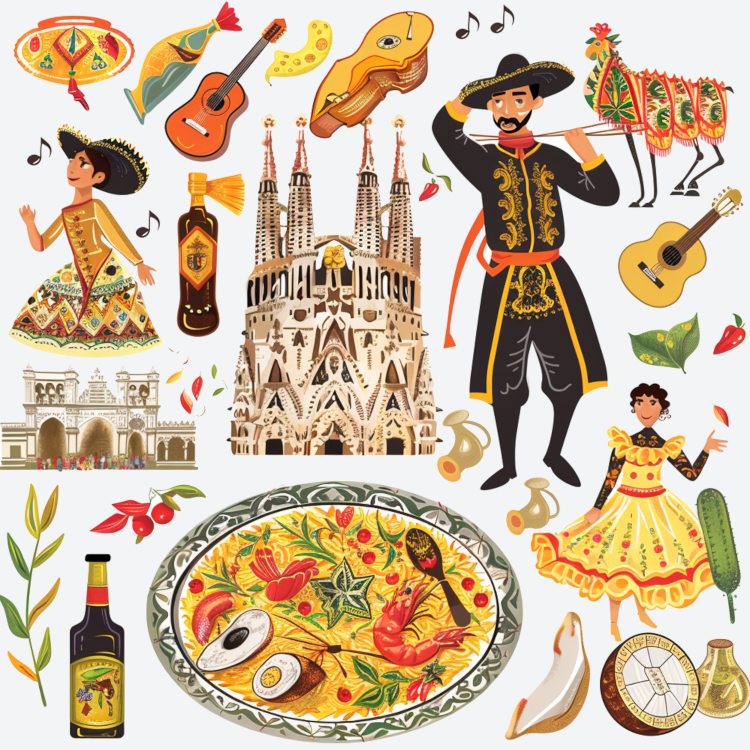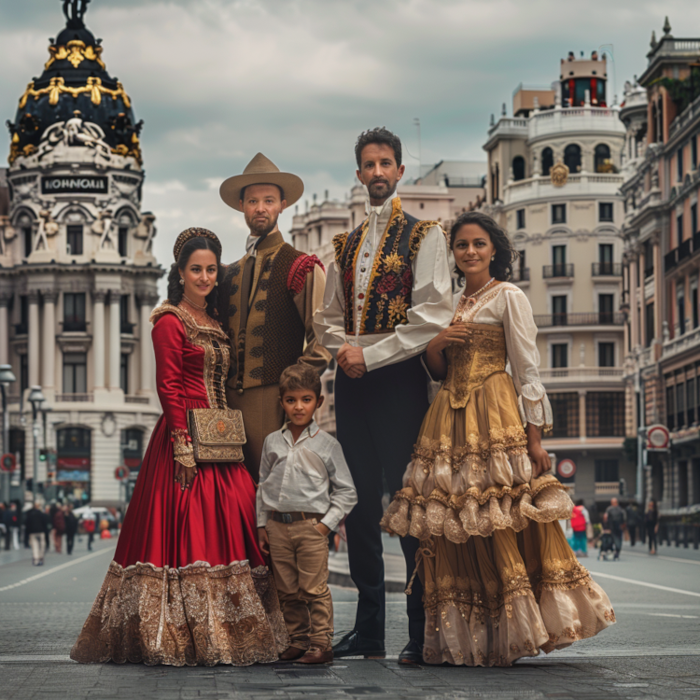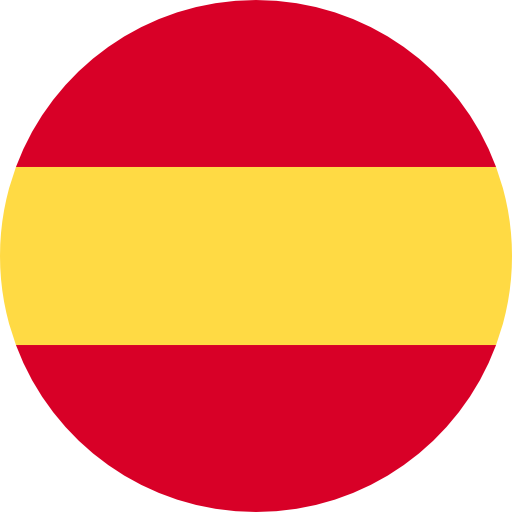About ES

Spain is a country located in southwestern Europe, occupying the majority of the Iberian Peninsula. It is bordered by Portugal to the west, France to the northeast, and the Mediterranean Sea to the south and east. Spain has a total area of 505,990 square kilometers and a population of approximately 47 million people.
The capital and largest city of Spain is Madrid. The official languages are Spanish, Catalan, Basque, and Galician, and the currency is the Euro.
Spain is a parliamentary constitutional monarchy, with a king or queen as the head of state and a prime minister as the head of government. The country has a mixed economy, with a strong focus on tourism, manufacturing, and services.
Spain is known for its rich history, culture, and arts, with landmarks such as the Alhambra, the Sagrada Familia, and the Prado Museum attracting millions of visitors each year. The country is also famous for its food and wine, with traditional dishes such as paella and tapas being popular worldwide. Additionally, Spain is renowned for its festivals and celebrations, including the Running of the Bulls in Pamplona and the La Tomatina tomato-throwing festival in Buñol.

National Culture Objects
Paella
Paella is a traditional Spanish rice dish originally from Valencia, typically made with seafood, meat, and vegetables. It symbolizes Spain's rich culinary heritage and regional diversity.
Flamenco
Flamenco is a traditional Spanish art form that includes singing, guitar playing, dance, and clapping. It represents the vibrant cultural heritage of Spain, particularly in Andalusia.
Sagrada Familia
The Sagrada Familia is a famous basilica in Barcelona designed by architect Antoni Gaudí. It symbolizes Spain's architectural innovation and cultural identity.
Don Quixote
Don Quixote, a novel by Miguel de Cervantes, is one of the most important works of literature from Spain. The character symbolizes the country’s literary heritage and imaginative spirit.
Spanish Guitar
The Spanish guitar, or classical guitar, is a significant musical instrument in Spain. It represents the country’s rich musical traditions and contributions to classical and contemporary music.
Bullfighting
Bullfighting is a traditional spectacle in Spain, though controversial, it remains a symbol of Spanish culture and history.
Olive Oil
Spain is one of the world's largest producers of olive oil. It symbolizes the country’s agricultural heritage and culinary traditions.
Fiesta
Fiestas, or traditional Spanish festivals, are an integral part of Spanish culture. They represent the country’s vibrant social life and communal celebrations.

The national anthem of Spain is called "Marcha Real" (Royal March), and it is one of the few national anthems in the world without lyrics. Instead, it consists solely of music and is played as an instrumental piece.
The origins of the "Marcha Real" date back to the 18th century, and it has been used as the official national anthem of Spain since 1770. Despite its long history, it was not officially recognized as the national anthem until 1997, when the Spanish government passed a law making it the country's official symbol.
The "Marcha Real" is typically played at official state ceremonies and public events, and it is often heard at sporting events, particularly when Spanish athletes win medals at the Olympic Games. The tune is easily recognizable and is considered to be one of the most well-known national anthems in the world.
While there are no official lyrics to the "Marcha Real," various lyrics have been proposed over the years, though none have been officially adopted.


